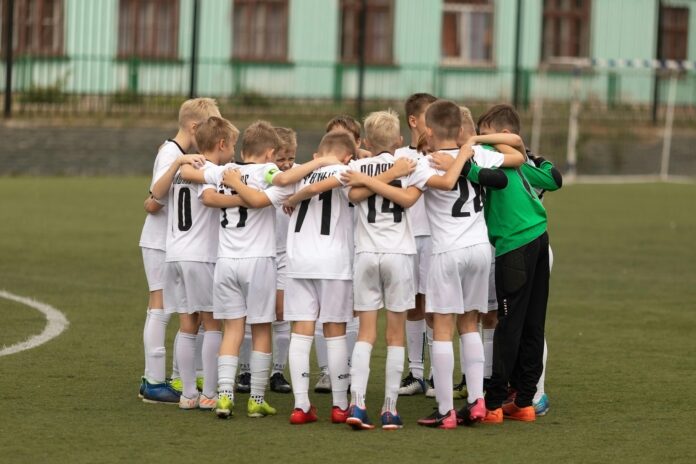Football is, at its core, a team sport. While individual skills are essential, it’s the ability to communicate effectively with teammates that often makes the difference between a good team and a great one. For young football players, learning to communicate on and off the field is not just about calling for a pass or giving tactical instructions—it’s about building trust, understanding, and cohesion within the team. As parents, you have a vital role in helping your child develop these skills by fostering positive, respectful communication habits at home.
Empathy
Effective team communication starts with understanding and empathy. Encourage your child to see their teammates as partners, each bringing their own strengths and challenges to the game. This mindset helps to build respect, making it easier for them to work together even in high-pressure situations. Talking to your child about the importance of teamwork, cooperation, and supporting each other can go a long way in helping them understand that football is not just about individual performance, but how they contribute to the success of the entire team.
Active Listening
One way to help your child develop good communication with teammates is by teaching them the value of active listening. On the field, this means paying attention not just to what is being said but also to the non-verbal cues—like body language and positioning. Off the field, it’s about respecting each other’s thoughts and ideas, and this is where parents can set an example. Practice active listening at home by giving your child your full attention when they are speaking. This shows them the importance of listening without interrupting, a skill that can improve their interactions with teammates.
Constructive Feedback:
Additionally, constructive feedback is a key element of effective communication among team members. Children need to learn how to express themselves honestly without being hurtful. Encouraging your child to share their thoughts in a positive, encouraging manner helps them learn how to give and receive feedback graciously. Remind them that sometimes teammates make mistakes, just like they do, and the best response is one that helps the team move forward. Saying, “I noticed you struggled with that, but let’s try again together,” can make a world of difference compared to negative or dismissive comments.
As a parent, you can also emphasize the importance of sportsmanship. Applauding teammates’ efforts, even when things don’t go as planned, is an important aspect of good communication. Encourage your child to celebrate others’ successes, just as they would want their own achievements to be recognized. Simple actions like a pat on the back, a high-five, or a few words of encouragement can help create a positive atmosphere, boosting overall team morale.
Conflict Resolution:
It’s also important to discuss conflict resolution. Inevitably, there will be disagreements on the field, whether over a missed pass or a difference in playing styles. When these moments arise, young players need to know how to handle them maturely. Encourage your child to stay calm, use kind words, and look for solutions rather than assigning blame. This approach not only keeps the focus on the game but also helps build a stronger, more unified team. Teaching kids to address issues directly, but with respect and understanding, will give them skills that will serve them far beyond the football pitch.
Lastly, help your child understand that communication on the field needs to be clear and confident. This doesn’t mean yelling or commanding, but speaking up when needed—calling for a pass, alerting teammates to open spaces, or organizing the defense. Practicing these skills can help them gain the confidence to assert themselves in a way that benefits the team. The more comfortable they feel communicating, the more they can contribute to the team’s success.
In essence, good communication among teammates is about respect, empathy, and collaboration. When young players learn to communicate effectively, they not only perform better as a team but also build connections and friendships that can last a lifetime. As parents, by modeling and encouraging these skills, you’re helping your child become not just a better player, but a better person.

